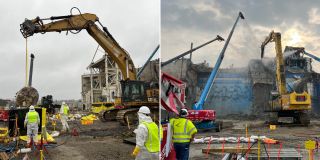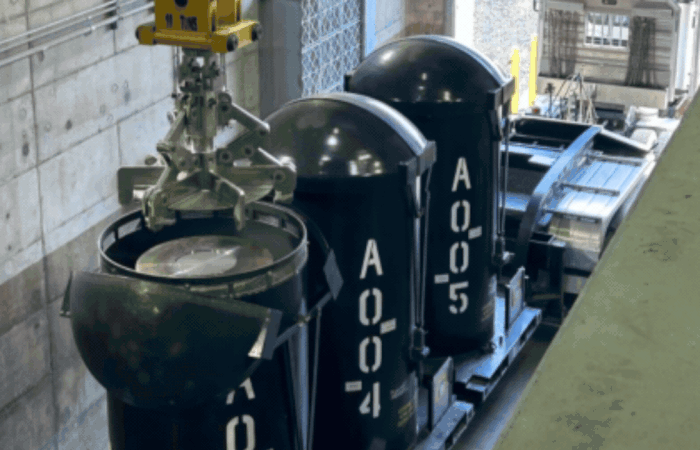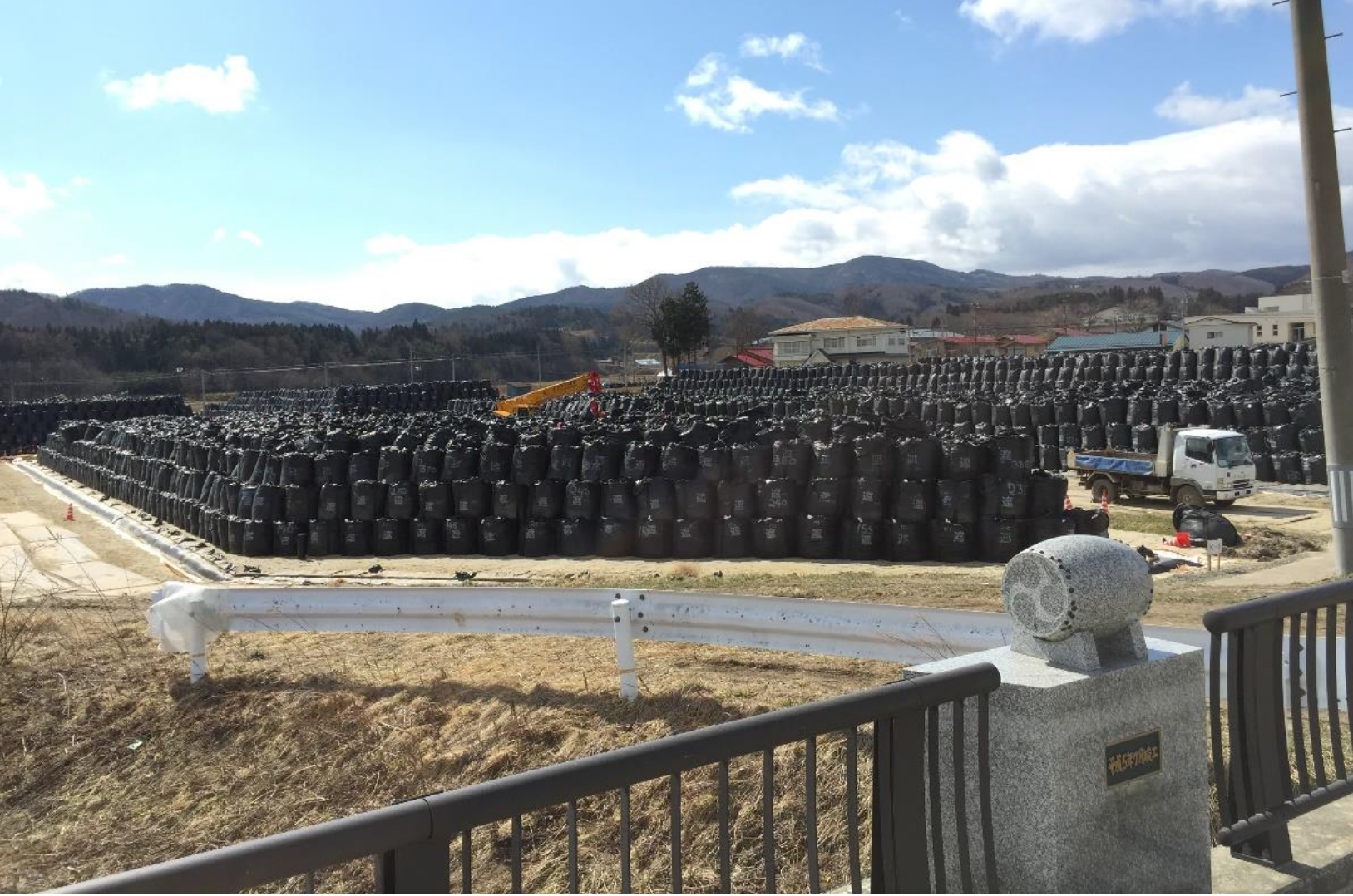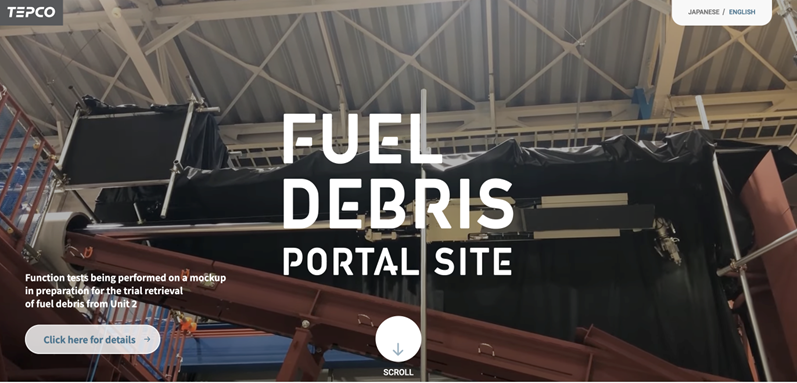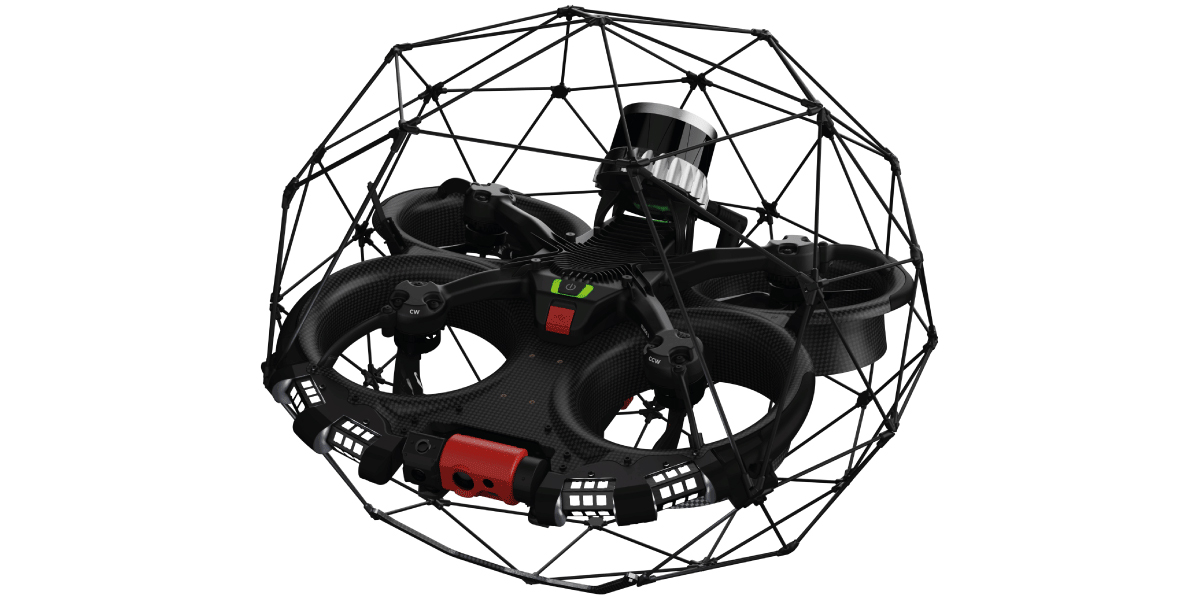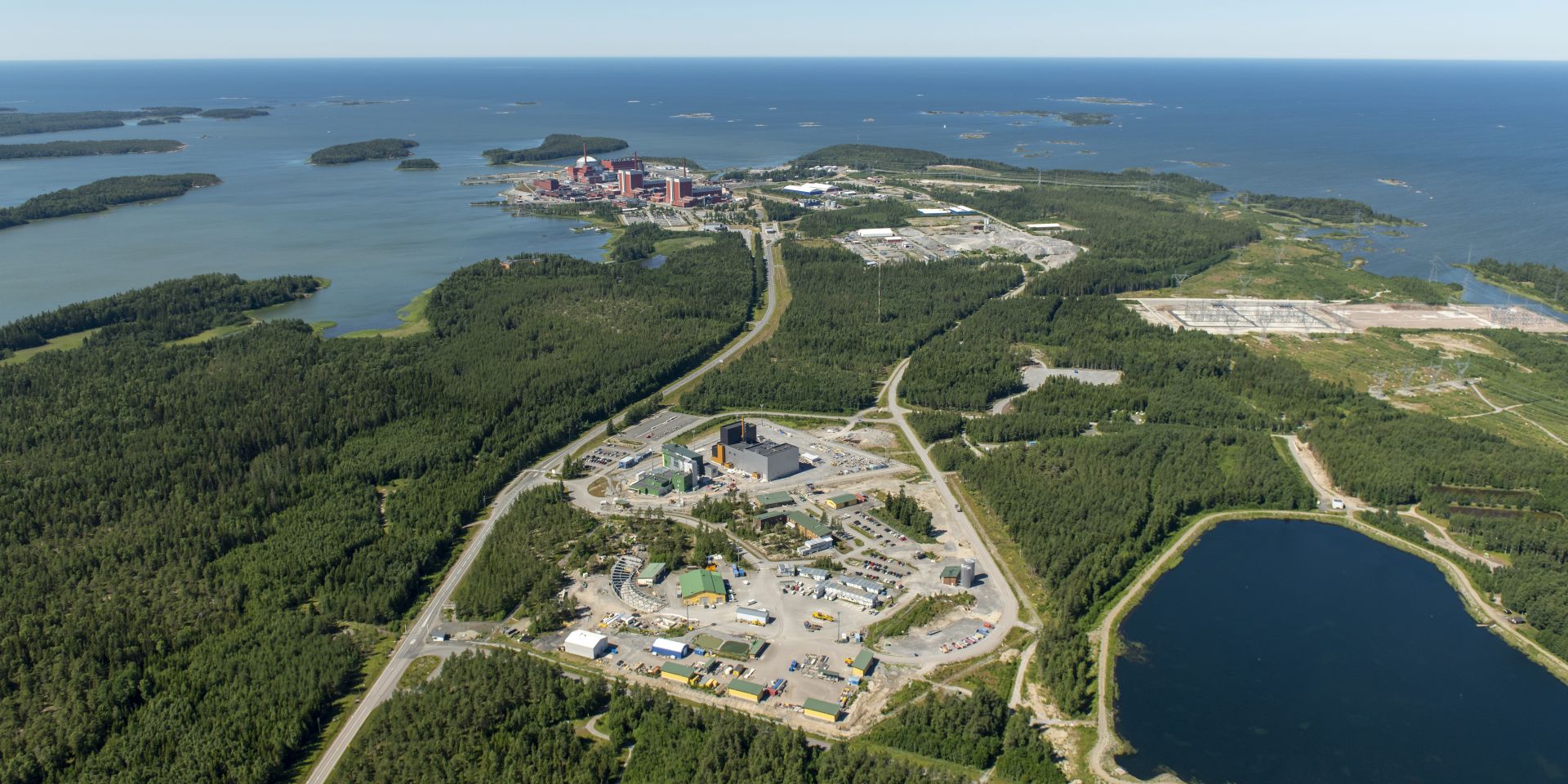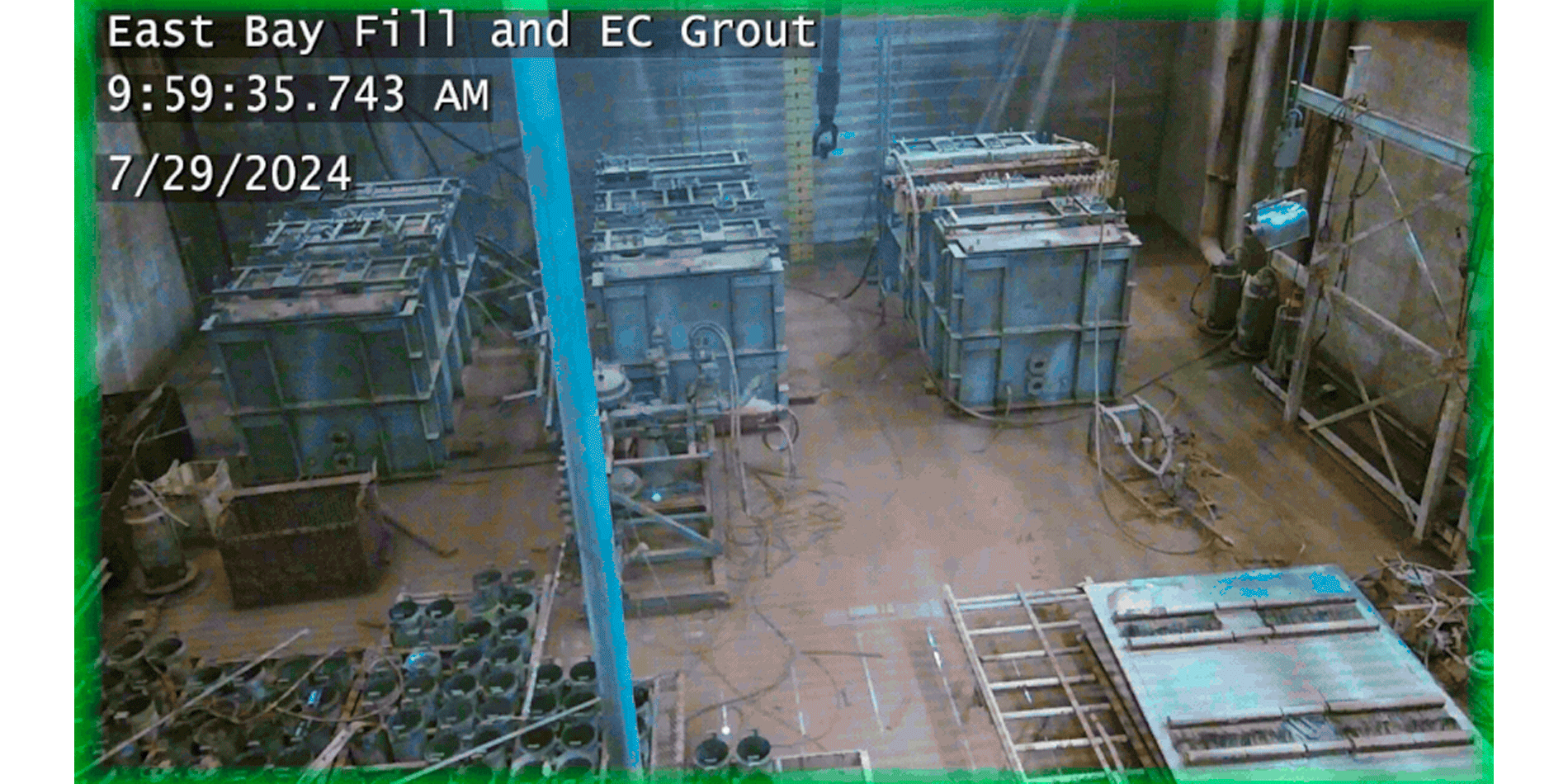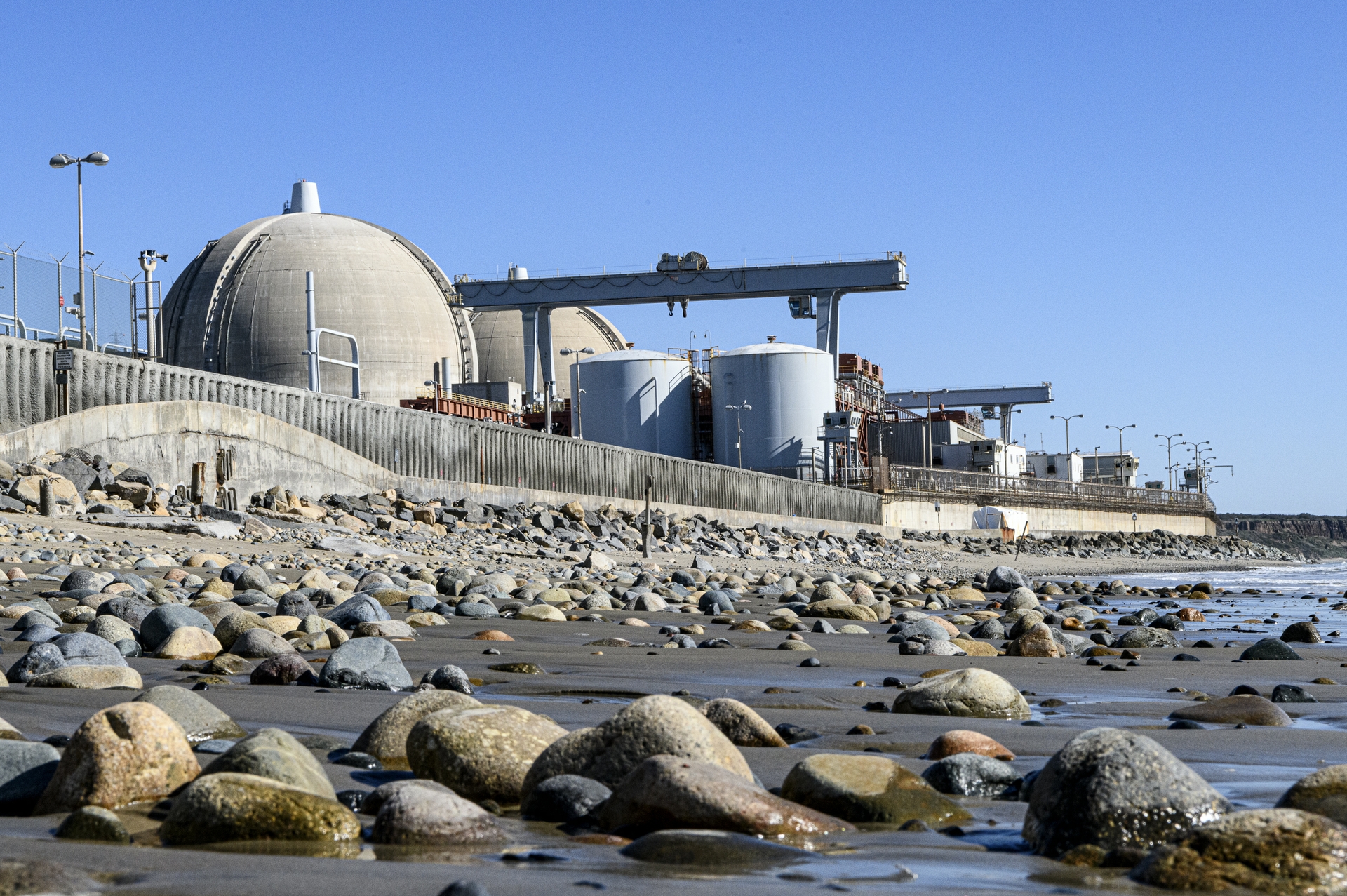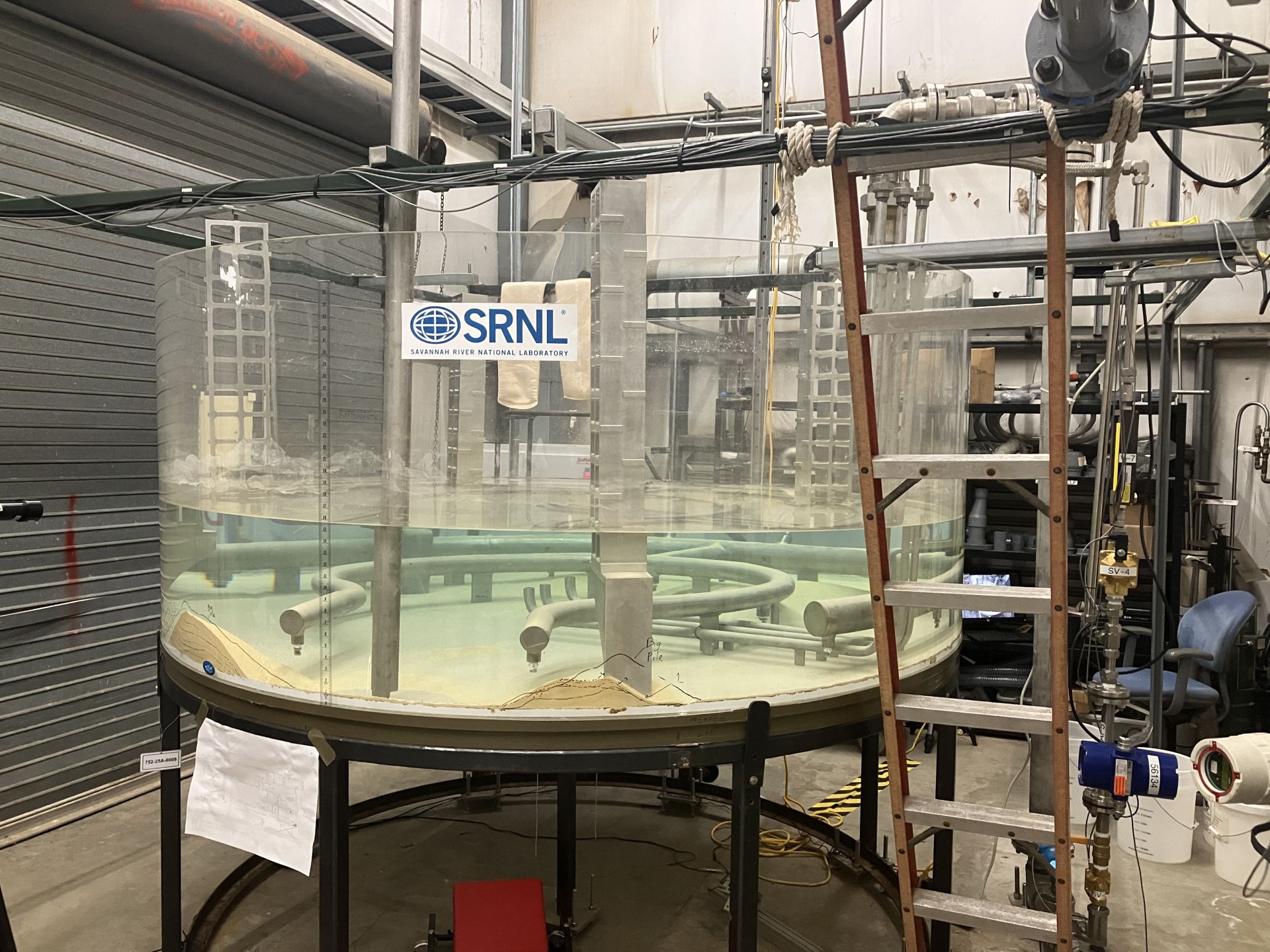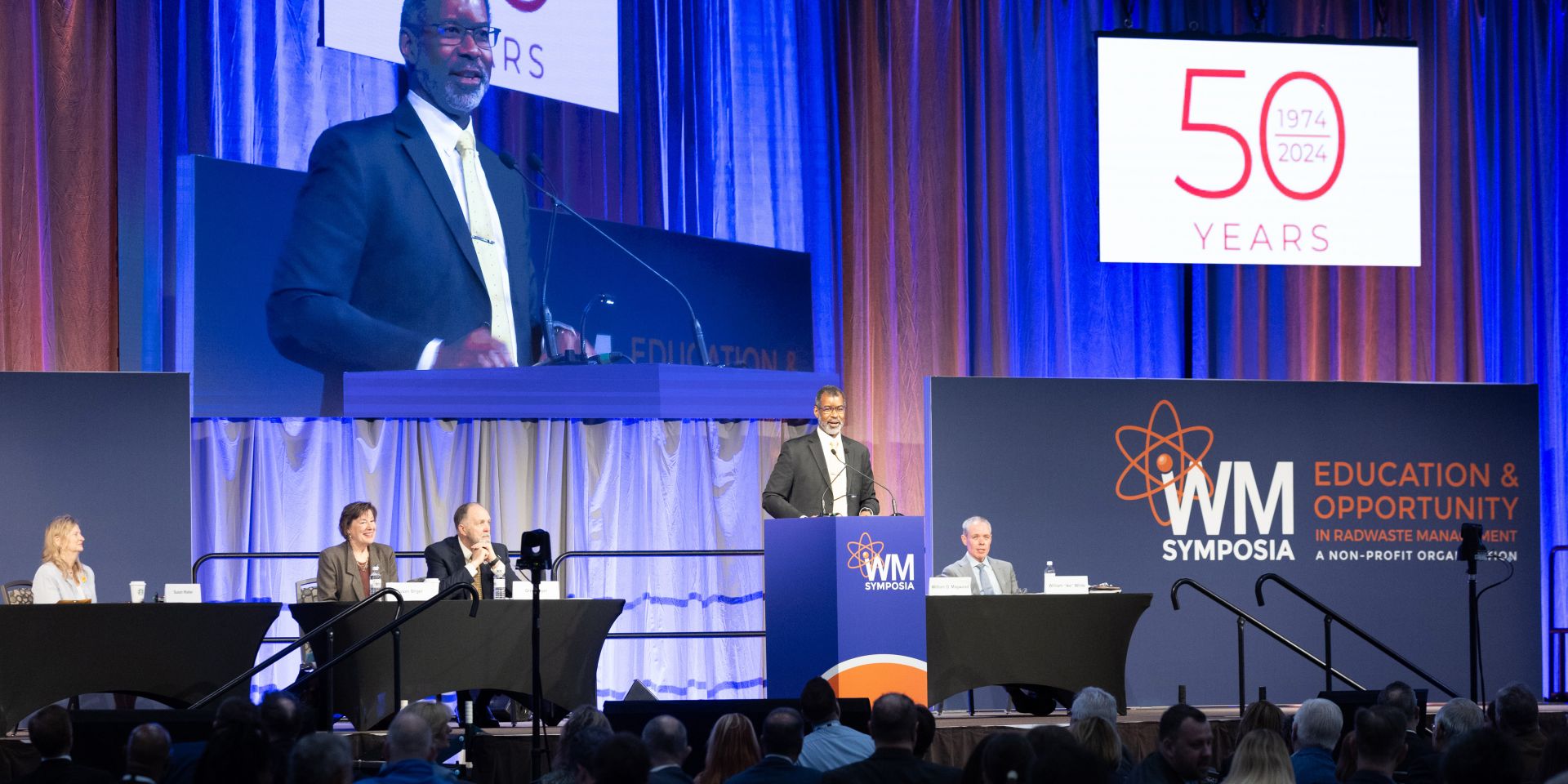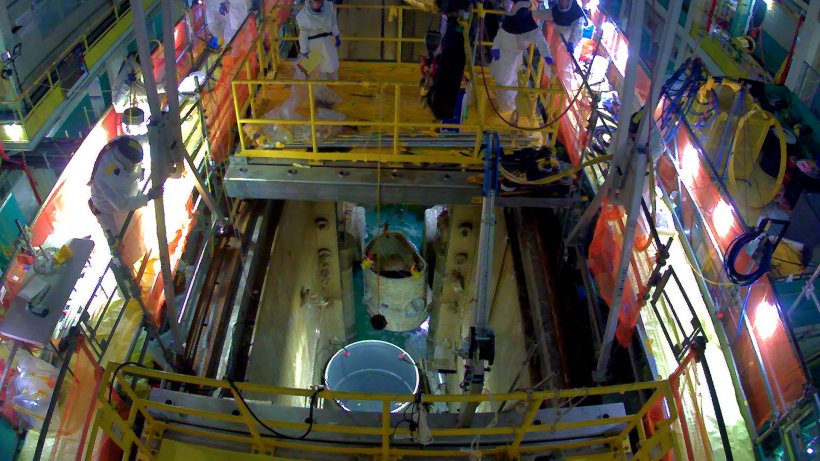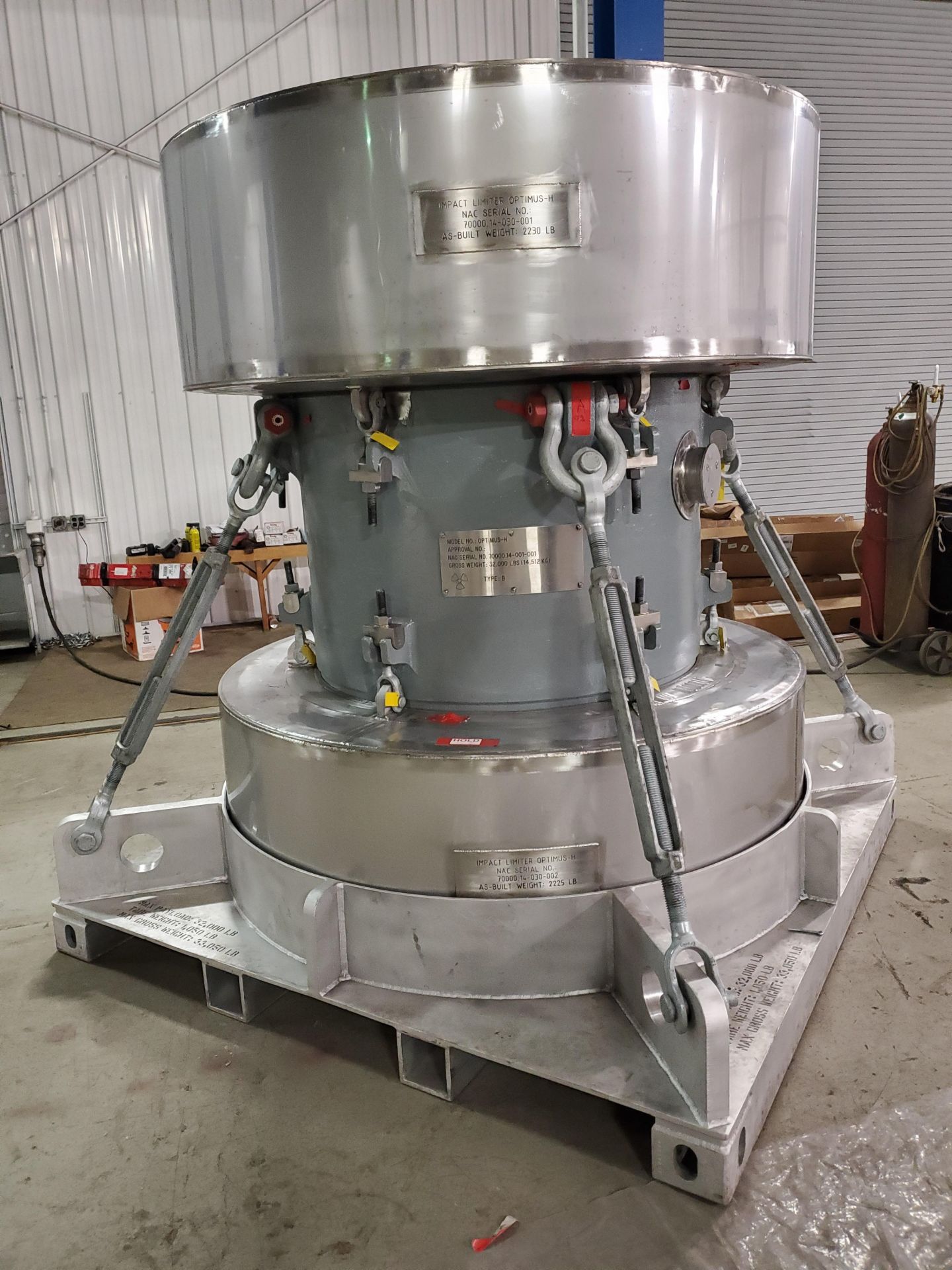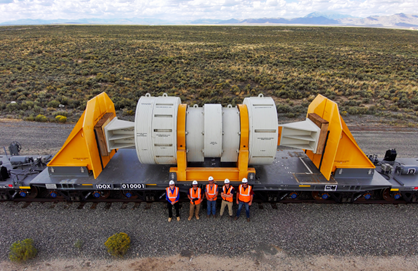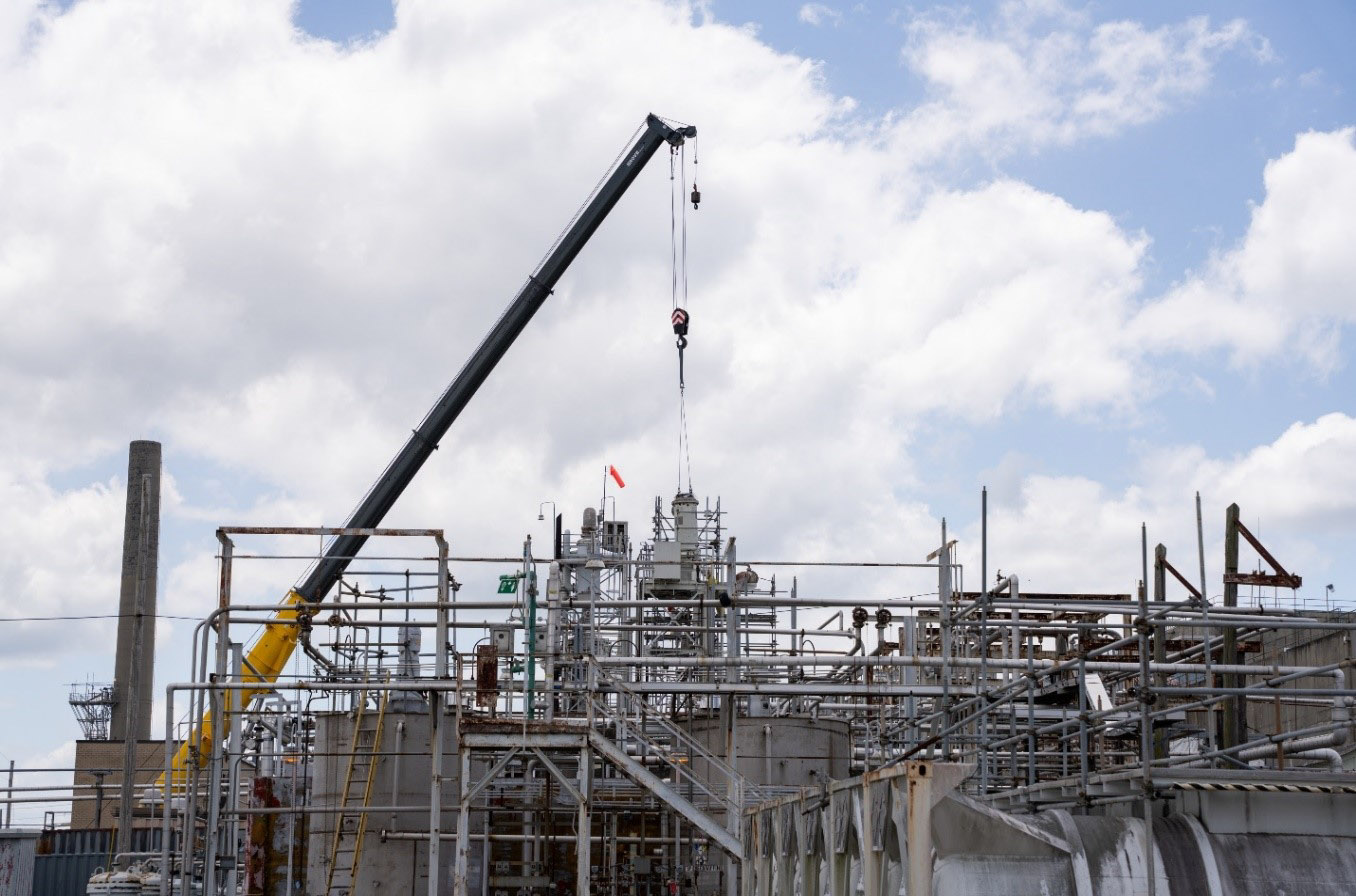Crews with the Idaho National Laboratory Site’s IWTU replace filter bundles inside the unit’s process gas filter. (Photo: DOE)
The Department of Energy’s Office of Environmental Management announced yesterday that waste processing operations have resumed at the Integrated Waste Treatment Unit (IWTU) at the Idaho National Laboratory Site. The resumption of operations follows the completion of two maintenance campaigns at the radioactive liquid waste treatment facility.
TMI-2 Community Advisory Panel board chair Dave Allard at the panel’s September meeting.
The Pennsylvania Department of Environmental Protection (DEP) expressed its confidence in the decommissioning work taking place at the damaged Three Mile Island Unit 2 during a recent meeting of the TMI-2 Community Advisory Panel (CAP). “We cannot be more pleased with the progress being made,” said Dwight Shearer, director of the DEP, during the meeting, held on September 13 in Middleton, Pa.
Hanford workers recently transferred three containers of nonradioactive test glass from the site’s WTP to the nearby Integrated Disposal Facility. (Photos: DOE)
According to the Department of Energy’s Office of Environmental Management, two contractors at its Hanford Site in Washington state have finished a first-time relay of test glass as the site prepares to vitrify—or immobilize in glass—millions of gallons of radioactive and chemical waste from its large underground tanks.
Video: Watch an “instant replay” of the test glass relay here.
Radioactive decontamination waste is held in temporary storage in Iitate Village, Fukushima Prefecture, in 2019. (Photo: O. Evrard, J. P. Laceby, A. Nakao/Wikimedia Commons)
The International Atomic Energy Agency has found that Japan’s planned approach for recycling and disposing of soil and radioactive waste from decontamination activities after the 2011 Fukushima Daiichi nuclear accident is consistent with the agency’s safety standards.
Work begins on the TBI demonstration at the Hanford Site, during which 2,000 gallons of low-activity waste will be treated and shipped off-site for disposal. (Photo: DOE)
The Energy Communities Alliance (ECA), which advocates for communities adjacent to or impacted by Department of Energy sites, is asking the department to conduct an independent analysis evaluating the impacts of delaying the implementation of its statutory interpretation of high-level radioactive waste, which holds that some waste from the reprocessing of spent nuclear fuel may be classified as non-HLW.
SRS liquid waste contractor Savannah River Mission Completion will use drones equipped with cameras to inspect the cleaning status of waste tanks at the site. (Photo: DOE)
The Department of Energy’s Office of Environmental Management will begin using drones for the first time to internally inspect radioactive liquid waste tanks at the department’s Savannah River Site in South Carolina. Inspections were previously done using magnetic wall-crawling robots.
The site of the Onkalo deep geological repository near Eurajoki, Finland, with the Olkiluoto nuclear power plant in the background. (Photo: Posiva)
Finland’s waste management organization Posiva announced that it has begun a trial run of placing spent fuel canisters in the Onkalo geologic repository, which is located near the Olkiluoto nuclear power plant in southwestern Finland. No spent fuel will be disposed of during the trial run, which is expected to last several months.
Work crews at the INL Site prepare to move Peach Bottom fuel from a transfer cask to a storage vault. (Photo: DOE)
Crews at the Department of Energy’s Idaho National Laboratory Site recently completed work to transfer baskets of spent nuclear fuel ahead of a September 30 deadline.
This series of photos shows the grouting of the K West Reactor spent fuel storage basin. Workers removed nearly 1 million gallons of contaminated water before filling the 16-foot-deep basin with about 6,500 cubic yards of grout—enough to fill two Olympic-size swimming pools. (Images: DOE)
Workers at the Department of Energy’s Hanford Site in Washington state recently finished filling the last large concrete basin at the K Reactor Area with cement-like grout. The basin stored reactor fuel rods from historic plutonium production in the 1950s.
The San Onofre Nuclear Generating Station. (Photo: SCE)
The Nuclear Regulatory Commission noted two low-level regulatory violations during a recent inspection of the San Onofre Nuclear Generating Station, which is currently undergoing decommissioning in Southern California. The violations involved the shipment of two reactor pressurizers from San Onofre to EnergySolutions’ disposal facility in Clive, Utah.
A mock-up model at SRNL was used to demonstrate a full-scale jet cleanout system to remove undissolved material from the H Canyon electrolytic dissolver. (Photo: DOE)
A collaboration between Savannah River Nuclear Solutions (SRNS) and Savannah River National Laboratory (SRNL) is making progress toward processing non-aluminum spent nuclear fuel (NASNF) as part of the site’s accelerated basin de-inventory mission. SRNL is the managing and operating contractor at the Department of Energy’s Savannah River Site in South Carolina.
The OECD Nuclear Energy Agency’s William Magwood addresses the plenary audience of the 2024 Waste Management Conference in Phoenix. (Photo: WM Symposia)
Waste Management Symposia announced that the theme of next year’s Waste Management Conference (WM2025) will be “Empowering A Sustainable Future—Advanced Technologies, AI, and Workforce Development across the Nuclear Landscape.” To be held in Phoenix, Ariz., March 9–13, the conference will showcase how new technologies and the evolving digital world are transforming the global nuclear landscape, supply chains, infrastructure, and work norms.
Teams use a 20-ton overhead crane to move the lower reactor vessel of the Oak Ridge Research Reactor into a cask for eventual shipment and disposal. (Photo: DOE)
The Atlas railcar carries a simulated shipment of spent nuclear fuel during testing in September 2023. (Photo: DOE)
The Department of Energy has issued a request for information to gather input on its proposed package performance demonstration, which is intended to demonstrate the robustness of spent nuclear fuel transportation casks in hypothetical accident conditions. By simulating severe accident scenarios, the DOE said it intends to show to the public and stakeholders the safety and reliability of transporting SNF by rail, heavy-haul truck, and barge.
The original 1950s-era condenser is lifted out of the GPE system by a 100-ton crane at SRS's H Canyon chemical separations facility. (Photo: DOE)
Workers at the Savannah River Site have recently completed the replacement of a piece of equipment that the Department of Energy said in a July 31 press release is “essential for operations in the site’s H Canyon chemical separations capable facility.”
A June 2024 photo shows solid waste inside the single-shell Tank A-101 at the Hanford Site’s A Tank Farm. (Photo: DOE)
Work crews have started retrieval of radioactive and chemical waste from a third set of underground storage tanks at the Hanford Site, according to the Department of Energy's Office of Environmental Management. Contractor Washington River Protection Solutions (WRPS) is retrieving and transferring more than 325,000 gallons of waste from the single-shell Tank A-101 at the site's A Tank Farm. The waste is being sent to a newer double-shell tank for continued safe storage.
Retrieval activities began one month after workers emptied the site’s 21st single-shell tank. Waste removed from the 21 tanks totals about 3 million gallons.

